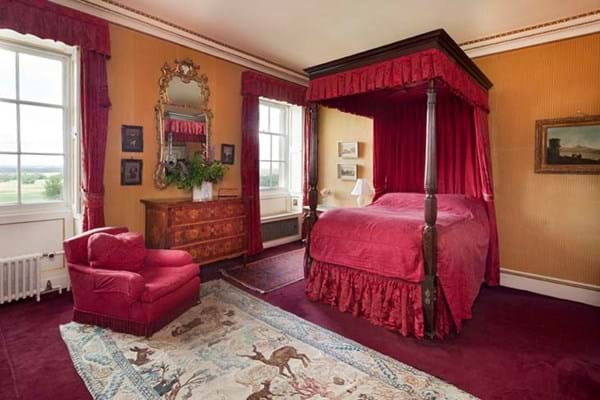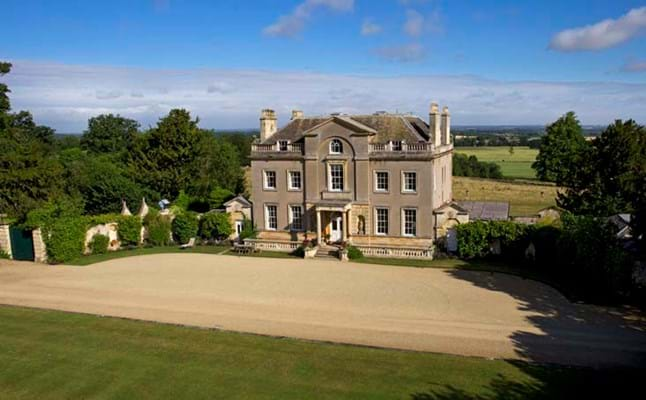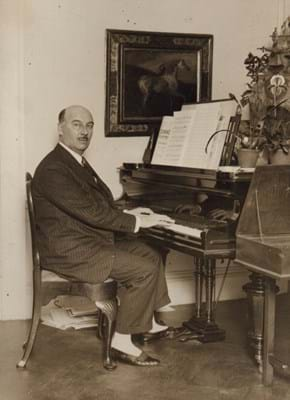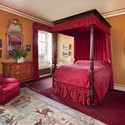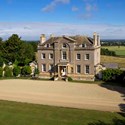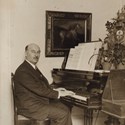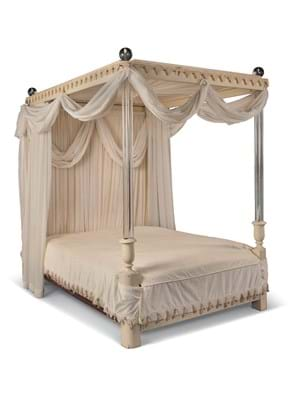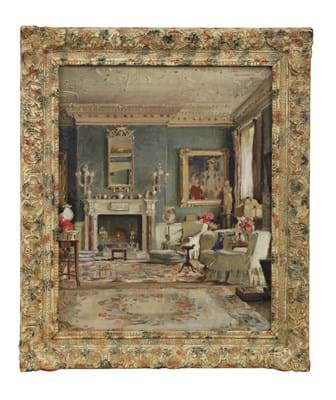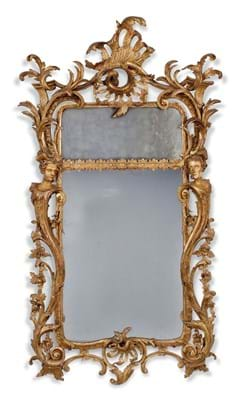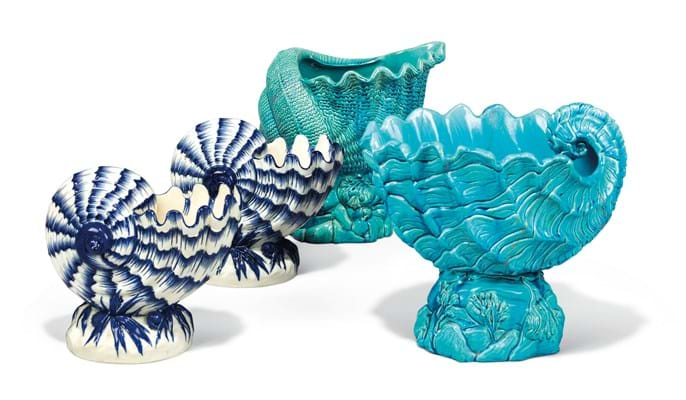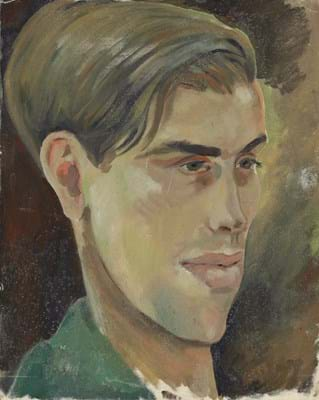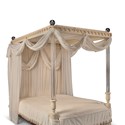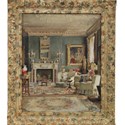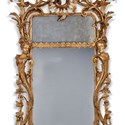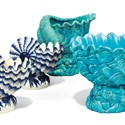“I can remember, during the tedious or frightening but always sleepless nights of fire-watchings in wartime London, that the place I longed to be in most intensely was the red bedroom at Faringdon, with its crackling fire, its Bessarabian carpet with bunchy flowers, and above all its four-post bed, whence from beneath a huge fat fluffy old-fashioned quilt one can gaze out at the view, head still on the pillow...”
That same bed, housed in an impressive Oxfordshire home and also used by the likes of Salvador and Gala Dali, is now up for auction on April 17.
Faringdon House was the home of Lord Berners - composer, writer, painter, and deeply eccentric. He made the house the centre of a glittering social circle in the last century, entertaining some of the most diverse, creative and influential people during the 1920-‘30s. Guests also included Evelyn Waugh, Siegfried Sassoon, John Betjeman, the Mitford sisters, HG Wells and Gertrude Stein.
Two sales offering items from the house are being held at Christie's London tomorrow, April 12, and Kidson-Trigg on April 17.
‘The Red Bed’ is estimated at £400-600 at the Kidson-Trigg saleroom near Highworth, Swindon, as part of a sale offering items from Faringdon House in Oxfordshire. This George III mahogany four-post bedstead has fluted and reeded baluster columns surmounted by a moulded cornice, hung with red damask bed curtains, bedspread and valance, and is 4ft (1.22m) wide.
Merlin inspiration
Mitford based her portrayal of Merlinford, home to aristocratic aesthete Lord Merlin in her novel The Pursuit of Love, on Faringdon House. Lord Merlin himself was inspired by Lord Berners.
Mitford’s ‘Red Bed’ quote comes from her article in Homes and Gardens in the 1950s, and is also featured in the book The Mad Boy, Lord Berners, My Grandmother and Me by Sonia Zinovieff.
A copy of that Zinovieff book is on offer at Kidson-Trigg lotted together with books, photographs, postcards, maps and ephemera etc all relating to Faringdon House, Lord Berners and Robert Heber-Percy, including postcards to Lord Berners from Cecil Beaton and Diana Mosley (estimate £40-80).
The postcard from Mosley, the third of the Mitford sisters, was sent from Holloway Prison in 1943. A friend to Adolf Hitler, she was the wife of the leader of the British Union of Fascists (BUF), Sir Oswald Mosley. Both were interned during the Second World War from 1940-43 (Churchill later granted her request that the Mosleys be imprisoned together in a small house inside Holloway’s walls).
Faringdon at Christie's
Christie’s is holding its Interiors including Faringdon House, Oxfordshire sale tomorrow (April 12) in King Street, St James’s. The contents on offer at this auction consist of conventional early to mid-Georgian furniture and mirrors, and 16th and 17th-century British portraits.
Among the Faringdon lots is a cream-painted and glass-mounted four-poster bed, mid-20th century, estimated at £3000-5000. A George II giltwood mirror in the manner of Matthias Lock, c.1745-50. Is guided at £30,000-50,000.
In an online article for Christie’s, Meredith Etherington-Smith writes: “The eccentric and witty additions to the grand decor revealed the curious conjunction of things that caught Berners’ fancy, marking him out as a collector in the grand eccentric English tradition of Horace Walpole and William Beckford.
“His taste veered from the surreal, such as a pair of Regency waxwork figures, to Venetian blackamoor torchères, to the turquoise Burmantofts and Minton shells that were so ubiquitous in chic interiors of the time.”
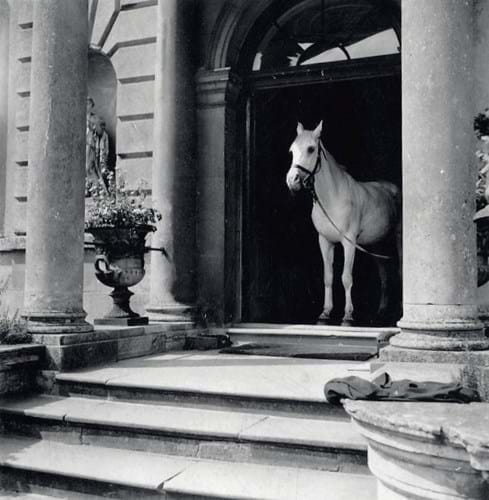
Moti, Penelope Betjeman’s Arab stallion, arrives at Faringdon for tea and his portrait sitting (picture courtesy of Christie's).
Among his deeds was an invitation to tea for Moti, Penelope Betjeman’s Arab stallion. It was a summons that came with a request: namely, that the horse ‘sit’ for a Berners portrait in his drawing room.
Etherington-Smith adds: “Eccentric to the very last, Lord Berners died in 1950, leaving Faringdon and its contents to his long-time companion, ‘Mad Boy’ Robert Heber-Percy. Fittingly, he wrote his own epitaph, which appears on his gravestone at Faringdon: ‘Here lies Lord Berners / One of the learners / His great love of learning / May earn him a burning / But, Praise the Lord / He seldom was bored’.”


